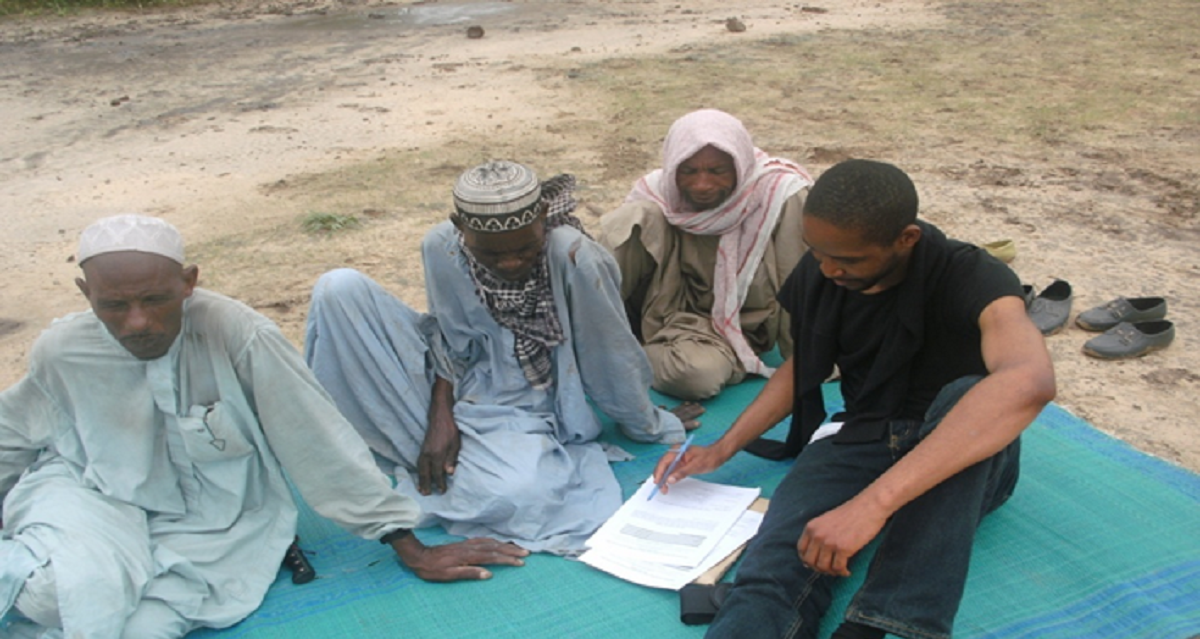
The relentless anthropogenic warming of the Earth’s climate poses a real security threat for people and communities in fragile countries. This threat has been expressed by a variety of actors at COP26 in Glasgow [1] and advanced in UN Security Council Debates [2]. Indeed, empirical accounts linking conflict risks directly or indirectly to climate change (known as climate conflict) have spurred a few developing country governments to include climate concerns on their list of threats to human security [3].
However, little is known about the transnational nature and spillover effects of climate conflict, especially in transboundary river basin territories – such as the Lake Chad region, which spans a number of countries in West and Central Africa. What might locally led climate security governance look like in places where climate change is exacerbating terrorism and organised crime? Strengthening transboundary citizens’ learning alliances and grassroots climate initiatives that integrate climate adaptation, peacebuilding and equitable prosperity has the potential to improve joint knowledge mobilisation, facilitating systemic understanding of these issues.
At NRI, I am working to advance transformative pathways towards sustainable peace and equitable prosperity in transnational territories of the watershed of the Lake Chad basin – areas that crosscut communities facing interrelated risks of violent conflict and climate change. I aim to do this by using innovative tools that are inclusive, participatory and deliberative, such as Young Citizens Panels, Consensus Conferences, Local Citizens Labs and a Conflict and Environment Observatory. Local Citizens Labs in Chad, Niger and Nigeria, for example, serve both as a hub for experiential and experimental learning and knowledge innovation, and a one-stop-shop for operationalising the Sustainable Development Goals related to peace and prosperity at a local scale. This work is being carried out through a UKRI Future Leaders Fellowship, awarded in September 2021.
COP26 offers a timely opportunity to assemble the right combination of voices and ambitions towards sustainable climate conflict solutions. But would ambitions lead to concrete actions to support human and planetary wellbeing going forward? What happens when COP26 is over? I am looking to leverage specific outcomes – relating to climate security – from COP26 to spur locally led citizens’ alliances, bringing together science, society and the state in a reciprocally useful way, to advance knowledge co-creation and change-making. By working through multiple partners in Africa, my work will facilitate ground-breaking new evidence to deepen public understanding of locally valid and locally owned climate security pathways to peace and prosperity in highly vulnerable African communities, helping to fast-track collaborative actions that address future peace and security implications of climate change.
Read the other articles in our COP26 series here.
References
[1] https://www.theguardian.com/environment/2021/oct/24/world-conflict-and-chaos-could-be-the-result-of-a-summit-failure
[2] https://www.un.org/en/climatechange/security-council-open-debate-climate-and-security-0
[3] Okpara UT, Stringer LC, Dougill AJ. 2016. Perspectives on contextual vulnerability in discourses of climate conflict. Earth System Dynamics, 7:89–102.

